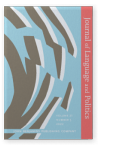Vol. 21:5 (2022) ► pp.742–762
Policy discourse in times of crisis
Debating educational policy in Portugal in the years of austerity
The current paper explores the relation between deliberation, political legitimization and decision making in educational policy in the aftermath of the intervention by the troika in Portugal in 2011. Centring on political debates about equal opportunities in education in the Portuguese parliament, it explores how arguments, such as ‘crisis’ and ‘change’, were employed to frame – and covertly promote – a concession of sovereignty to international organizations and legitimize a turn in policy-making to an austerity doctrine regarding education policies. Findings reveal the interplay between a loose and polyphonic discourse of international organizations, and the construction of a narrative of failure regarding educational policies previously adopted, recontextualized and thus enabled the change towards neoliberal policies in Portuguese education policies, bringing about a leaner concept of equal opportunities in education at the national level.
Article outline
- 1.Introduction
- 2.Analysing political deliberation in parliament: A complementary approach
- 3.The morphogenesis of discourse in the Portuguese Parliament
- 3.1How to argue: The normative order
- 3.2Reasons for debate: The argumentative game
- 3.2.1Crisis
- 3.2.2Change
- The ideas of ‘complacency’, rigour, and quality of success
- 3.3Intertextualities: The disputable authority over policies
- 3.4Framing ideas: When policy emerges
- 4.Conclusions
- Acknowledgments
-
References
